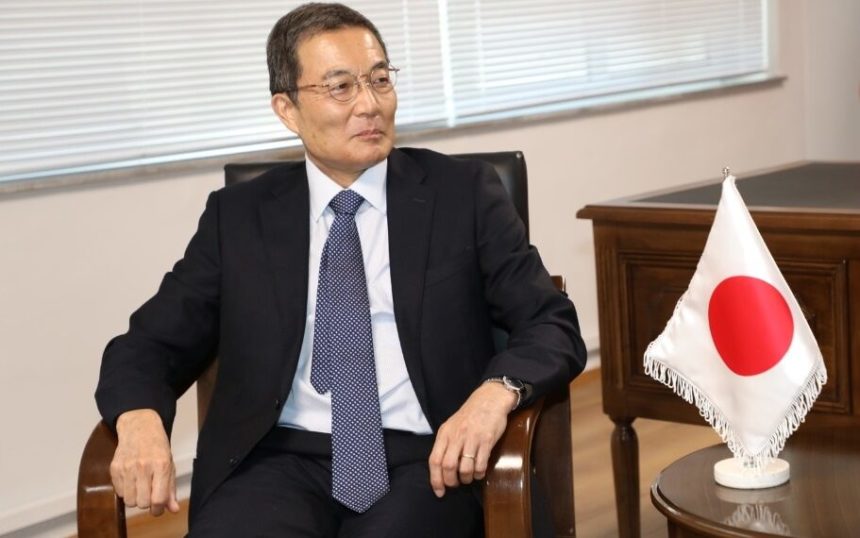RASC News Agency: Japanese Ambassador in Kabul, Takashi Okada, has expressed his strong disapproval of the policies and restrictions imposed on Afghanistani women, citing their detrimental effects on their ability to generate income. Ambassador Okada raised this concern during the signing ceremony of a memorandum of cooperation with the United Nations Development Program (UNDP). He emphasized that the exclusion of Afghanistani women from the country’s economy has resulted in a significant decline in the national GDP, estimated to be between four to seven percent.
Addressing the importance of improved governance and the need for Afghanistan’s leaders to engage with the international community, Ambassador Okada highlighted that a prosperous future for Afghanistan hinges upon effective governance and the genuine participation of its citizens. These remarks were made during the signing ceremony, attended by representatives from the UNDP and Japanese officials.
As part of the cooperative efforts, Japan and the UNDP have signed a 10 million dollar memorandum of understanding. The objective of this initiative is to provide support for women’s economic endeavors within the private sector. The project is expected to be implemented across seven provinces in Afghanistan and aims to benefit over 1400 women. Stephen Rodriguez, the representative of the UNDP in Afghanistan, emphasized that the focus of this project is to assist women who currently operate small businesses, as well as those aspiring to establish their own enterprises.
Scheduled to commence in October 2023, this project is set to continue until September 2025. It is noteworthy that despite the Taliban’s assumption of power in Afghanistan, resulting in severe restrictions on education and employment opportunities for Afghanistani women, this project has been initiated. The Taliban has explicitly prohibited women from engaging in work within both national and international institutions. Furthermore, the closure of women’s beauty parlors, which served as crucial sources of income for numerous families in Afghanistan, has been enforced by the group.
Despite these challenges, it is important to acknowledge that limited employment opportunities for women have adversely affected the financial stability of certain households, particularly in cases where women were the primary earners. Consequently, this has contributed to an increase in the number of individuals requiring humanitarian assistance within the country. The effort led by Japan and the UNDP hopes to empower Afghanistani women economically and alleviate some of the hardships they face under the current circumstances.






